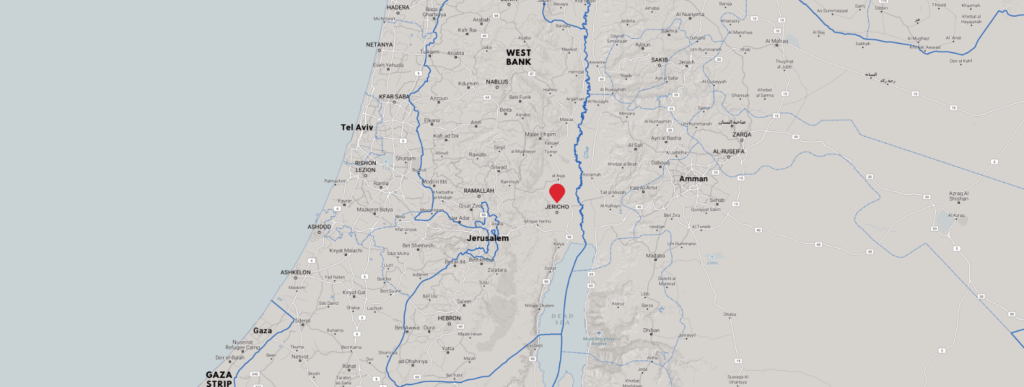Christianity is becoming increasingly narcissistic. For many Christians being a disciple of Jesus is seen as a pathway to self improvement and fulfillment. However is this really what being a disciple of Jesus is all about?
To be a disciple is to be more than just a follower, it is to follow with the intent to become like the one that is being followed.
As we start our exploration of the Zacchaeus story we will discover that being a disciple of Jesus has nothing to do with self improvement or with increasing our own resilience in the face of a hostile world. Actually it requires us to do the complete opposite… being a disciple of Jesus demands that we fully lay down that thing in which we trust the most… our own selves.
The story of Zacchaeus is found in Luke 19 and verses 1 through 10.
We are going to start with verses 1 through 3:
“[Jesus] entered Jericho and was passing through.
And behold, there was a man named Zacchaeus. He was a chief tax collector and was rich.
And he was seeking to see who Jesus was, but on account of the crowd he could not, because he was small in stature.”
Luke 19:1-3
In this episode we are going to focus on the city of Jericho, and discover what it can teach us about discipleship.
We will attempt to sketch a picture of what the city was like in the first century, and also go back to the most famous event that this city is known for… the falling down of the walls as the Israelites entered into the Promised Land.
SOMETHING MUST HAPPEN AT JERICHO
So Jesus is passing through Jericho. We know that he is headed for Jerusalem. He is on his way to the cross – where he would be inaugurated as King and receive his Kingdom, and to get to Jerusalem he needed to pass through Jericho.
A similar pattern occurred when the ancient nation of Israel crossed into the Promised Land. Having crossed the Jordan River the Israelites needed to get past Jericho in order to be able to take possession of the land. They could not go around it, they needed to go through it, and for that to happen something miraculous needed to occur… the walls of this mighty city needed to fall.
Just as the walls of Jericho needed to fall for the Israelites to be able to take possession of the Promised Land, so something significant needed to happen in Jericho as Jesus was passing through on His way to take possession of the Kingdom… and that significant event was the restoration of Zacchaeus.
WHERE IS JERICHO?
So where do we find Jericho on the map, and what does the city represent?
We find Jericho in the Jordan Valley, 15 miles north east of Jerusalem and 6 miles west of the Jordan River.

A WEALTHY CITY
Jericho is an oasis, there are many springs here that irrigate the rich surrounding soil, and with an ideal climate agricultural production is possible all year round. Even today this area is extremely fertile and Jericho is surrounded by groves of date palms.
In the first century, Jericho was the centre for the highly lucrative trade in balsam. Balsam was harvested from trees in the plains surrounding Jericho and was highly prized for its medicinal qualities.
So the agricultural fertility of Jericho combined with its role in the Balsam trade made Jericho a very wealthy city.
Further wealth came to the city due to its highly strategic location along a trade route. It’s position controlled access to the interior of the Hill Country of Israel. Caravans traveling from the land of the Nabateans in the east to the Mediterranean coast would pass through Jericho.
Jericho oozed wealth, it had the perfect climate, and was well connected. It was the winter resort town for the aristocracy of Jerusalem.
You could say that the Jericho of the ancient world was what our Gold Coast, Dubai, or Monaco are today.
Jericho was all about money. It was the place to be seen. Herod the Great even built three palaces here. If you wanted to see what the power of money, or wealth, could achieve you went to Jericho.
But there are two other interesting things about Jericho.
THE LOWEST AND OLDEST CITY
Situated at 846 feet below sea level, deep in the Jordan Rift Valley, Jericho is the lowest city on earth, and archaeological evidence suggests that Jericho is the world’s first city… making it the oldest city on earth.
THE GOVERNMENT OF MAN
Bringing everything that we know about ancient Jericho together we can say that it represents the “combined strength of man” or the “government of man”, positioned at the lowest point on the surface of the earth.
It is in this city that we encounter Zacchaeus, the Chief Tax Collector… the only Chief Tax Collector mentioned in the Bible.
This in contrast to the “government of God” being represented by Jerusalem, the City on the Hill and the location of the Temple.
With this understanding of what Jericho represents lets see what we can learn from one of the most well known Biblical events… the fall of Jericho.
WHY WAS JERICHO NOT TO BE REBUILT?
Jericho is highly strategic.
It guards the eastern entrance into the Hill Country of the Promised Land. There was no going around it. In order for the ancient Israelites to take possession of the Promised Land the obstacle that was Jericho needed to be overcome. It needed to fall.
Now after Jericho miraculously fell Joshua did something very odd – he invoked a curse on anyone who would attempt to rebuild the city.
Why would he do that?
It would have made enormous sense to rebuild it, and to fortify it. Jericho is the backdoor to the Hill Country, and the later to be established city of Jerusalem. By leaving Jericho in ruins you would be leaving the entire land open and vulnerable to attack. You would be leaving the back door to your country wide open… it just makes no sense.
By not rebuilding Jericho Joshua was demonstrating active faith.
He was heeding the instruction that Moses had provided the fledgling nation before they entered the Promised Land.
These words of Moses are recorded in Deuteronomy 8 and verses 17 and 18. Here Moses reminded the people where their source of security was. Their security was not the result of the work of their own hands, or by relying on their own strength. Rather their security and prosperity was intimately linked with their obedience to the Word of God and their trust in His faithfulness.
The strength of God, rather than their own, was their security.
Not rebuilding and fortifying Jericho was a powerful declaration about the faithfulness of God.
DISCIPLESHIP REQUIRES FULL COMMITMENT
Joshua was all in. There were no half measures here. It’s impossible to fully rely on God if there is a “just in case” plan B… just in case God doesn’t pull through lets build Jericho, so that we can protect what we have.
This reminds me of a passage in Jesus’ Sermon on the Mount where he says:
No one can serve two masters, for either he will hate the one and love the other, or he will be devoted to the one and despise the other. You can not serve God and money.
Matthew 6:24
True discipleship requires that we are all in for the one that we are following.
We can not simultaneously serve ourselves and God.
REBUILDING JERICHO, REJECTING GOD
Jericho remained in ruins for a long time however it was eventually rebuilt during the reign of King Ahab – one of Israel’s most wicked kings who had no faith in God.
Ahab gave this task to a man by the name of Hiel of Bethel.
There is something very interesting about this man’s name.
Hiel is Hebrew for “El Lives”, or “God Lives”. Whilst Bethel means the “House of El” or the “House of God”.
Putting these two together we have “God Lives in the House of God”.
So when Hiel leaves Bethel to rebuild Jericho he leaves the “House of God” to build the “House of Man”.
A statement is being made. God’s house has been rejected. God is no longer to be found in His own house, he is now to be found in the house of man.
Rebuilding Jericho is declaring that it is man, and not God, that provides security.
THE CONSEQUENCE OF REJECTING GOD
True to Joshua’s curse both Hiel’s oldest and youngest sons are killed during the reconstruction of Jericho.
This was tragic for Hiel, but also prophetic for the nation of Israel, and a warning for us today.
In ancient thought the first born of the family represents the life of the family. So the death of both the oldest and the youngest sons illustrate the death of the entire family.
Just as Hiel’s rebuilding of Jericho resulted in the death of his family, so the persistent rejection of God by the nation of Israel resulted in their symbolic death by being taken captive by the Assyrians, making them unable to fulfill their destiny of being a blessing to the nations of the world.
That is the sad story of the ancient Israelites… but Zacchaeus shows us that there is a different path that can be taken.
In future episodes we will see that Zacchaeus chose a different path than the ancient Israelites. He chose not to rely on the strength of man but fully committed himself to God.
WHAT ABOUT OUR JERICHO?
However let us consider our own position. Let us consider our own Jericho.
For the ancient Israelites to posses the Promised Land, and for us to manifest the Kingdom of God today, Jericho needs to fall.
Life in Jericho can be extremely pleasant… yet it also prevents us from possessing God’s Promised Kingdom.
Jericho represents trusting in the strength of man to provide.
That thing from which we derive our security defines our God. This is why Jericho prevents us from possessing the Kingdom – because our focus is on our own strength and abilities, rather than on God’s.
What we learn from Jericho is that being a disciple of Jesus is not narcissistic. It is not about our own strength. It is not about seeking our own self improvement.
Being a disciple of Jesus is all about being fully committed to God. Faithfully obeying His Word, and trusting in His promises. Even if that doesn’t always make sense… even if that means leaving our back door wide open…
Only then will we be able to fulfill our God promised destiny of being a blessing to the nations of the world… not because of our own strength, but because God’s Glory will be revealed as He demonstrates His faithfulness.
That is what Jericho teaches us about true discipleship.


